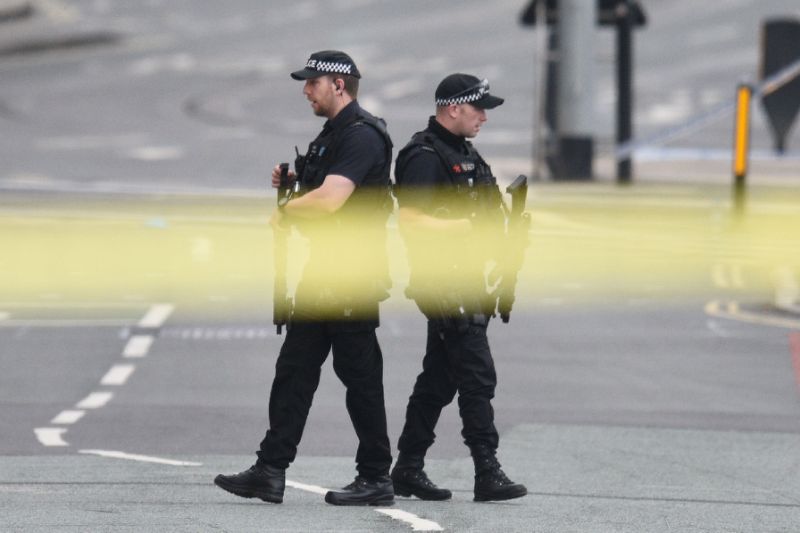Terror Attack Tests U.K. Leaders as Election Campaign Put on Ice

EghtesadOnline: If Theresa May has gotten any sleep in the past 24 hours, her spokesman wouldn’t know: he never asks.
The 60-year-old prime minister was kept informed of events in Manchester all through Monday night. At 4 a.m., she called Labour Party leader Jeremy Corbyn to agree to suspend their campaign for the June 8 general election following the deadliest terrorist attack on British soil since 2005.
Through the next day, May twice chaired the government’s COBRA emergency committee, visited the Manchester police’s situation room and stopped by the city’s children’s hospital. On Tuesday night, she announced a plan to deploy the military to guard concerts and sporting events against another attack that she warned could be imminent, according to Bloomberg.
A prime minister who had appeared tetchy and defensive on Monday as she denied missteps in her election campaign was recast as a national leader. Among senior British politicians, May has the most experience dealing with terrorism. For six years as home secretary, she decided whether to sign interception warrants requested by the Security Service, MI5, as it tracked and tried to foil terrorist plots.
“All acts of terrorism are cowardly attacks on innocent people,” she said as she stood outside her Downing Street office. “But this attack stands out for its appalling, sickening cowardice, deliberately targeting innocent, defenseless children and young people who should have been enjoying one of the most memorable nights of their lives.”
The suicide attack in Manchester, at a pop concert geared to young people, claimed 22 lives and left at least 59 injured. The tragedy was the latest in a series of attacks to traumatize Europe over the past two years. It also underscored the unintended consequences of a Brexit vote that may threaten U.K. security ties with EU allies.
Brown’s Hero
British politicians aren’t above using such events for political ends. In 2007, as Gordon Brown contemplated calling a snap election to secure his own position, he pointed to his handling of a series of failed terrorist attacks as evidence of his competence. He even invited the hero of one of the attacks, Glasgow baggage handler John Smeaton, to the Labour Party’s conference, so he could hail him in his speech. He didn’t call the election.
While the prime minister went about her official duties, other politicians had family to attend to. The daughters of the newly elected Labour mayor of Liverpool, Steve Rotheram, were at the Ariana Grande concert when it was attacked. Liberal Democrat leader Tim Farron said his four children all had friends there.
For Corbyn, the test was a professional one. The Labour leader wants voters to make him prime minister in less than three weeks, and his response needed to help them picture him in the role. “This is an appalling act of violence against people, and it must be totally and unreservedly and completely condemned,” he said. “We must support those people who have suffered so much. In these circumstances we have to come together.”
Corbyn’s situation was made more sensitive by his past political positions. Early editions of Tuesday morning’s Sun newspaper -- printed before the Manchester attack -- carried the front page headline “Blood On His Hands.” Inside was an article by a former member of the Irish Republican Army who accused Corbyn of being a “cheerleader” for his movement in the 1980s. The Labour leader denies this, saying he met Irish republicans in an effort to promote peace.
It’s not clear when political campaigning will resume or what effect the attack will have. A week before the 2016 referendum on European Union membership, an anti-Brexit member of parliament, Jo Cox, was murdered by a white supremacist. The Brexit side still won.
The attack could reinforce May’s message that she’s a strong leader in dangerous times, or it could bolster Corbyn’s that the U.K. has made the risk of terrorism greater by fighting wars in the Middle East that it should have stayed out of. Although, as details emerge about the attack, there are perils for May if questions are thrown up over those responsible for keeping the public safe.
“After an event like this voters tend to go with continuity,” Wyn Grant, professor of politics at Warwick University, said in a telephone interview. “It now really becomes a question of leadership.”


